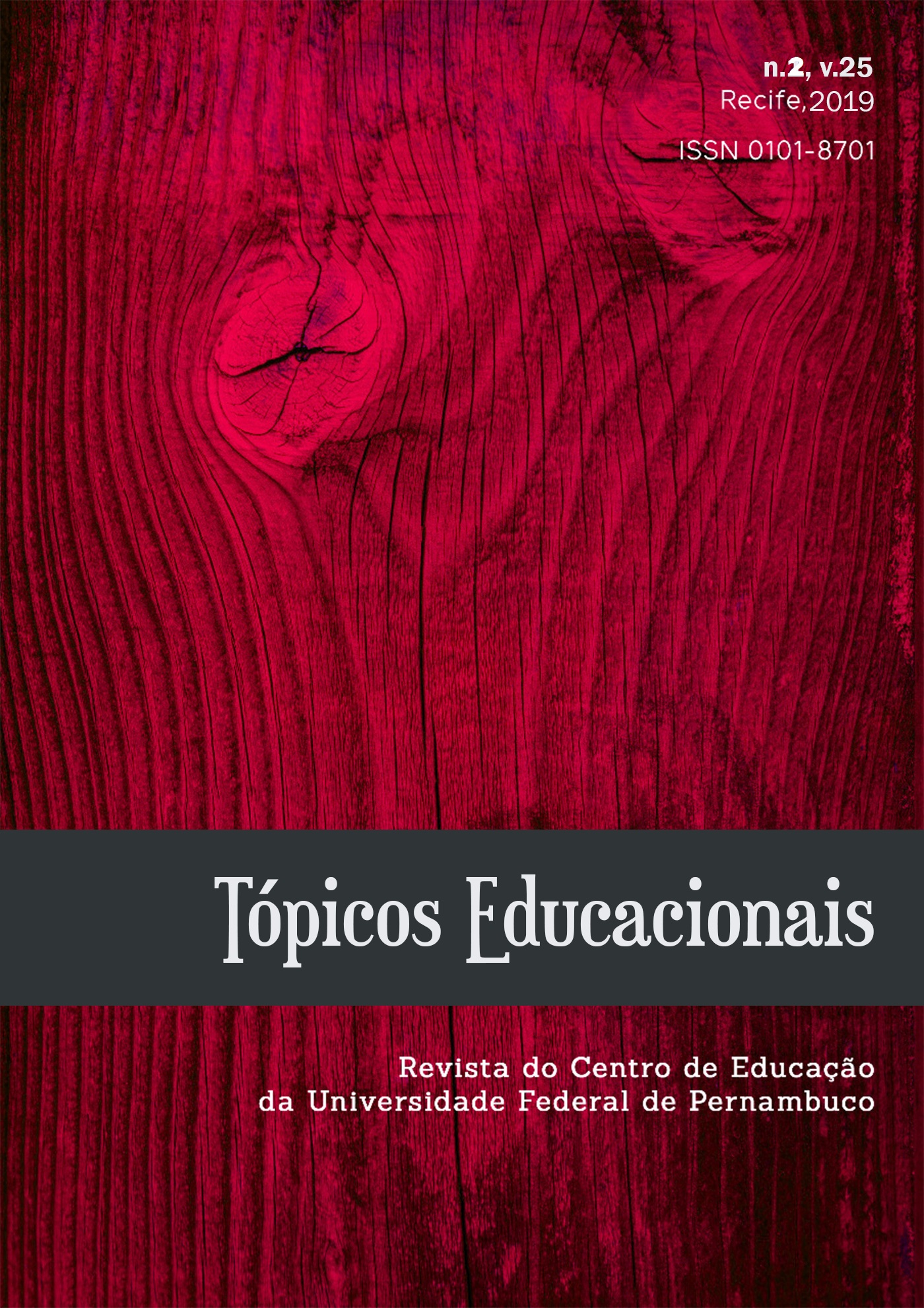Literacy and lettering in field education: didactic games and contextualized activitieswith the peasants knowledge
DOI:
https://doi.org/10.51359/2448-0215.2019.244544Keywords:
Literacy and Literacy, Rural Education, Didactic Games, PIBIDAbstract
The purpose of this article was “the processes of literacy and literacy in the peasant context” and sought to investigate the contributions of playfulness mediated by didactic games in the progress of literacy and literacy of children of the 3rd year of elementary school in a rural school, in 2017. Developed in a school attended by the Teaching Initiation Scholarship Program (PIBID) of the Pedagogy course at the Federal University of Pernambuco (UFPE-CAA), the research aimed to: i) analyze the contributions of playfulness based on didactic games, as mobilizers of student participation in class; and ii) identify if there was progress in the development of students' literacy and literacy, as the adopted methodology involved the playfulness based on the didactic games inthe classroom. The following were used as theoretical framework for the elaboration of this work: Leal, Mendonça, Morais and Lima (2008); Soares (2003); Blacksmith (2004); Blacksmith and Teberosky (1979); Morais (2012); Soares (2010); Coutinho (2005); Caldart (2012); Arroyo (2004); Kishimoto (2002); Murcia (2005); Miranda (2001). The research is qualitative approach, having as locus a municipal public school located in Caruaru-PE, in the peasant territory of Alto do Moura. Methodologically, we worked with participant observation and pedagogical intervention, whose data were recorded in two field diaries. Research participants were treated as E1, E2 and E3. The results show that, in the initial diagnostic evaluation, the three students (E1, E2 and E3) presented in the syllabic-alphabetic phase of the development of the alphabetic writing system (SEA), however, during the activities that involved the playfulness articulated to the students. didactic games, it was evidenced that the students advanced to the alphabetic level of the writing system, confirmed in the final diagnostic evaluation. It was concluded that the built methodological path, involving the playfulness mediated by the didactic games, materialized as possibility of the beginners acting to the teaching of PIBID, marked by the advances that the students presented in the constructed path, triggering satisfaction in the participation of the classes, having as a consequence the advances in the processes of construction of literacy and literacy by students.
References
CARVALHO, Marlene. Alfabetizar e Letrar: um diálogo entre a teoria e a prática. RJ: Vozes, 2008.
CALDART, R. Educação do campo. In CALDART, R. et al. (Org.) Dicionário da educação do campo. São Paulo: 2012.
COUTINHO, Marília de Lucena. Psicogênese da língua escrita: O que é? Como intervir em cada uma das hipóteses? Belo Horizonte: Autêntica, 2005.
FERREIRO, Emília. Alfabetização em processo. 15. ed. São Paulo: Cortez, 2004.
GOMES, R. R.; FRIEDRICH, M. A Contribuição dos jogos didáticos na aprendizagem de conteúdos. Rio de Janeiro, 2001.
KISHIMOTO, T. M. O jogo e a educação infantil. Pioneira, São Paulo, 1994.
___________. Jogo, brinquedo, brincadeira e a educação. Cortez, São Paulo, 1999.
LEAL, T. F.; MENDONÇA, M.; MORAIS, A. G.; LIMA, M. Q. O lúdico na sala de aula: projetos e jogos. Brasília: 2008.
LOPES, M. da G. Jogos na Educação: criar, fazer e jogar. São Paulo: Cortez, 2001.
LÜDKE, M.; ANDRÉ, M. E. D. A. Pesquisa em educação: abordagens qualitativas. São Paulo: 1986.
MIRANDA, S. No Fascínio do jogo, a alegria de aprender. Ciência Hoje, 2001.
MORAIS, A. G. Sistema de escrita alfabética. São Paulo: Melhoramentos, 2012.
MURCIA, Juan Antônio Moreno (Org.). Aprendizagem através do jogo. Porto Alegre: Artmed, 2005.
SOARES, Magna. Alfabetização e letramento. São Paulo: Contexto, 2003.
_________. Simplificar sem falsificar. In: Revista Educação – Guia da Alfabetização: Os caminhos para ensinar a língua escrita. N. 1. p. 6-11, SP: Editora Segmento, 2010.
Downloads
Published
Issue
Section
License
Copyright (c) 2020 Tópicos Educacionais

This work is licensed under a Creative Commons Attribution 4.0 International License.
Authors who publish in this journal agree to the following terms:
a) Authors retain copyright and grant the journal the right of first publication, with the work simultaneously licensed under the Creative Commons license: org/licenses/by/4.0, which allows sharing the work with acknowledgment of its authorship and initial publication in this journal.
b) This journal provides public access to all its content, as this allows for greater visibility and reach of the articles and reviews published. For more information about this approach, visit the Public Knowledge Project, a project that developed this system to improve the academic and public quality of research, distributing the OJS as well as other software that supports public access to academic sources. Names and email addresses provided on this site will be used exclusively for the purposes of the journal and will not be made available for other uses.









